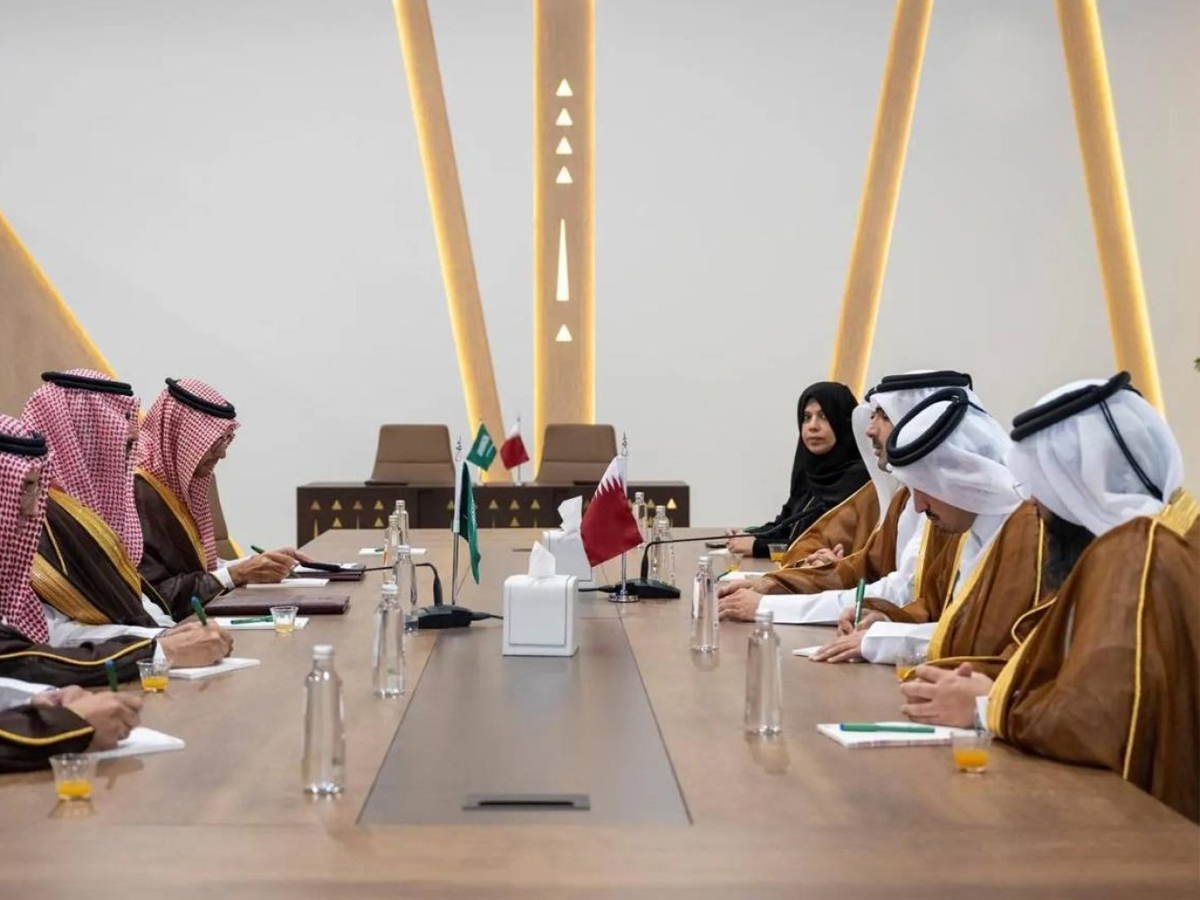Дом – Культура Катара
Культура Катара - это захватывающая смесь традиций и современности, глубоко укоренился в его Бедуин наследие, Исламские принципы, и быстрое развитие, которое превратило его в одну из самых богатых стран мира. Поскольку Катар продолжает расти на мировой арене, Проведение международных мероприятий и модернизация своей инфраструктуры, Стране удалось сохранить и отпраздновать свою богатую культурную идентичность. В этой статье рассматриваются различные аспекты Катарская культура, включая его историю, Семейные ценности, социальные обычаи, религия, и искусство, Предлагая углубленный взгляд на традиции и практики, которые определяют эту яркую нацию.
Исторические влияния на катарскую культуру
Культурная идентичность Катара глубоко связана с его Бедуинские корни. Перед открытием нефти в 20 -м веке, Катар был в значительной степени обитал кочевые бедуинские племена, которые пересекали суровый пустынный ландшафт. Эти племена жили простыми жизнями, полагаясь на верблюд, жемчужный, и рыбалка поддерживать себя. Жизнь в пустыне была трудной, и ценности гостеприимства, сообщество, и находчивость была необходима для выживания. Эти ценности пережили и продолжают играть центральную роль в катарской культуре сегодня.
А Открытие нефти и природного газа В середине 20-го века стал поворотный момент для Катара, превращение его из скромного сообщества торговли и жемчуга в богатое, Современное государство. Однако, Несмотря на быстрое развитие, Катар остался приверженным сохранению своего культурного наследия. Правительство инвестировало в культурное сохранение Проекты, такие как Катара культурная деревня и Музей исламского искусства, которые демонстрируют историю страны и ее вклад в более широкий арабский и исламский мир.
Религия в катарской культуре
ислам находится в центре катарской культуры, И это формирует множество аспектов повседневной жизни, в том числе социальные нормы, юридические структуры, и личное поведение. Большая часть населения Катара придерживается Суннитский ислам, и исламские принципы интегрируются в правовую систему, который основан на Закон шариата. Влияние ислама выходит за рамки религиозной практики, чтобы диктовать нормы, связанные с семейной жизнью, гостеприимство, скромность, и гендерные роли.
Молитва является неотъемлемой частью повседневной жизни в Катаре. А Адхан (Призыв к молитве) эхом по улицам пять раз в день, Призывая мусульман на выполнение своих салат (молитвы). Предприятия часто делают операции кратко, чтобы позволить молитве, и мечети служат центральными местами для собраний для сообществ. Пятница, Исламский священный день, особенно важно, с Фрауах (Пятничные молитвы) быть коммунальным событием для мужчин, и часто сопровождается проповедями, которые касаются моральных, социальная, или религиозные вопросы.
Исламские фестивали играют важную роль в культурном календаре Катара, с наиболее важным существом Рамадан, месяц поста, молитва, и размышление. Во время Рамадана, Мусульмане быстро с рассвета до заката, воздерживается от еды, питьевой, курить, и другие физические потребности. Это время для духовного роста, благотворительность, и семейное единство. Месяц завершается Ид аль-Фитр, Празднование, отмеченное коммунальными молитвами, пир, и обмен подарками. Еще один важный фестиваль - это Ид аль-Эдха, который отмечает готовность Пророка Ибрагима (Авраам) пожертвовать своим Сыном как акт послушания Богу. Эти фестивали - время для коммунальных собраний, благотворительность, и укрепление семейных и общественных связей.
Семейная и социальная структура
Семья является основой общества катарского общества, и семейные связи глубоко ценятся. Семейная единица обычно расширяется, с бабушкой и дедушкой, тетя, дяди, кузены, и другие родственники играют значительную роль в повседневной жизни. Верность к семье является одним из самых важных достоинств в культуре катарской культуры, и семейные узы воспитываются через регулярные встречи и празднования.
Традиционно, Семьи Катара патриархальные, с отцом или старшим мужчиной, служащим главой семьи. Его власть уважается во всех основных решениях, в том числе те, которые связаны с браком, образование, и карьерные пути. Что сказано, Женщины также уважаются в семье, Особенно в их роли как матерей и лиц, осуществляющих уход. Участие женщин в образовании и рабочей силе значительно выросло за последние десятилетия, С большим количеством катарских женщин, получающих усовершенствованные степени и профессиональную карьеру.
Уважение к старейшинам является еще одним ключевым аспектом семейной структуры в катарской культуре. Старейшины почитаются за их мудрость и опыт, и младшие члены семьи, как ожидается, проявит уважение к ним во всех аспектах жизни. Это уважение также распространяется на лидеров сообщества и религиозных деятелей.
Гостеприимство и социальные обычаи
Одним из самых устойчивых аспектов катарской культуры является ее акцент на гостеприимство. Вытекает из прошлого страны, Когда выживание в пустыне зависело от щедрости других, гостеприимство остается высоко ценной добродетели в Катаре. Катари гордится тем, что они милостивые хозяева, и гостей обращаются с огромным уважением и добротой.
Посетителей домов Катари часто приветствуются с Гахва (Арабский кофе) и даты. Гахва, варело с кардамоном и часто подается из традиционного горшка под названием Достопримечательности, это символ гостеприимства катар. Подается в маленьких чашках, и гости должны выпить как минимум одну чашку. Сигнализировать, что у них было достаточно, Гости должны осторожно встряхнуть чашку после окончания. Отказ гостеприимства считается невежливым, Поскольку хозяин гордится тем, что предлагает их лучшее посетителям.
Другим важным аспектом катарского гостеприимства является Маджлис, Традиционная гостиная, где мужчины собираются, чтобы обсудить бизнес, политика, и личные вопросы. Маджлис - это место для общения и строительства связей, часто из -за еды и напитков. В то время как мужчины и женщины обычно собираются отдельно в традиционных условиях, Важность гостеприимства и сообщества имеет решающее значение для обоих.
Платье и скромность
Катары уделяют сильный акцент на скромность, что отражается в их традиционной одежде. Катарские мужчины обычно носите Тоби (также называется посудой), длинная белая халата, которая покрывает тело, вместе с Гутра или куфия (Головное покрытие) это обеспечено агал (черный шнур). Этот традиционный наряд является практичным для климата горячей пустыни, так и символ культурной идентичности. Мужчины очень заботится о том, чтобы хорошо представить себя, Как их внешность отражается не только на себе, но и на их семьях.
Катарские женщины Традиционно носить Абая, длинный черный плащ, который покрывает тело, в паре с Шейла (шарф, который покрывает волосы). В то время как Абая является символом скромности и культурной гордости, Это также рассматривается как утверждение моды, Со многими женщинами выбирают абая в разных стилях и украшениях. На публике, Женщины -катарки должны одеваться скромно, И это распространяется и на иностранных посетителей, кто должен обеспечить, чтобы их плечи и колени были покрыты в общественных местах как признак уважения к местным таможне.
Фестивали и праздники
Национальный день Катара (18 декабря) является одним из самых важных светских праздников в стране, отмечая день в 1878 Когда шейх Джассим бин Мухаммед Аль Тани сменил своего отца и основал штат Катар. В этот день, Катарис празднует свою национальную гордость с парадами, фейерверк, и культурные мероприятия, которые демонстрируют наследие страны. Улицы Дохи оживают традиционной музыкой, танцевать, и показы катарской культуры, разрешение как граждан, так и экспатриантов принять участие в торжествах.
Другие ключевые праздники включают Гарангао, Средняя рамаданская традиция, где дети одеваются в традиционную одежду, идут по пению от двери до двери и собирают сладости у соседей. Это событие, Похоже на Хэллоуин, коренится в идее обмена и общины и любит как дети, так и семьи.
Искусство и культурное выражение
Катарская культура уделяет сильный акцент на искусство и культурное выражение, с традиционной музыкой, танцевать, и поэзия играет важную роль в обществе. Одной из самых знаковых форм культурного выражения является Овощ поэзия, Форма стиха, которая возникла с бедуинами и до сих пор широко ценится сегодня. Эти стихи часто рассказывают истории любви, честь, и пустынная жизнь, и исполняются на общественных собраниях и культурных мероприятиях.
Традиционная катарская музыка также влияет прошлое мореплавания страны, с такими инструментами, как уд (тип лютни) и таблетка (ручной барабан) Воспроизведение ключевых ролей в выступлениях. Ал сегодня, Традиционный танец меча, является центральной частью национальных праздников и фестивалей, исполняется мужчинами, которые танцуют в рядах, неся мечи и пение.
Приверженность Катара сохранению его культурного наследия очевидна в таких учреждениях, как Музей исламского искусства и Катара культурная деревня, Оба из которых празднуют прошлое страны, продвигая современное искусство и творчество. Катар также является домом для растущей киноиндустрии и нескольких международных культурных фестивалей, отражая его усилия по смешиванию традиций с современностью.
Заключение
Культура Катара - богатый и сложный гобелен, сотканный из его Исламская вера, Бедуин наследие, и Современные глобальные влияния. Несмотря на быстрое развитие и модернизация, Катар удалось сохранить и отпраздновать свои традиции, ценности, и социальные обычаи. От важности семьи и гостеприимства до глубокого уважения к религии и скромности, Катарская культура остается жизненно важной частью идентичности страны, поскольку она продолжает развиваться на мировой арене.

Катарские традиции и культура представляют собой завораживающее сочетание древнего бедуинского наследия., Исламская вера, и живой дух сообщества, который манит вас исследовать и испытать на собственном опыте.

Катарские традиции и культура представляют собой завораживающее сочетание древнего бедуинского наследия., Исламская вера, и живой дух сообщества, который манит вас исследовать и испытать на собственном опыте.
Авторское право 2024 © Все права принадлежат Qatari Culture